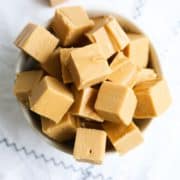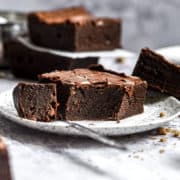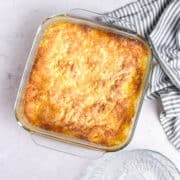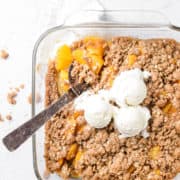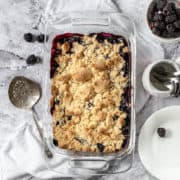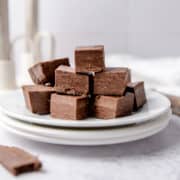You can use hard boiled eggs in a variety of ways. Mash them with mayonnaise to make egg salad, slice them for sandwiches or enjoy them for breakfast. But what's the best way to store hard boiled eggs to maximize their shelf life? Should they be refrigerated and how long will they last? Read on to discover the answer to those questions so you can enjoy a fresh-tasting hard boiled egg whenever you please.
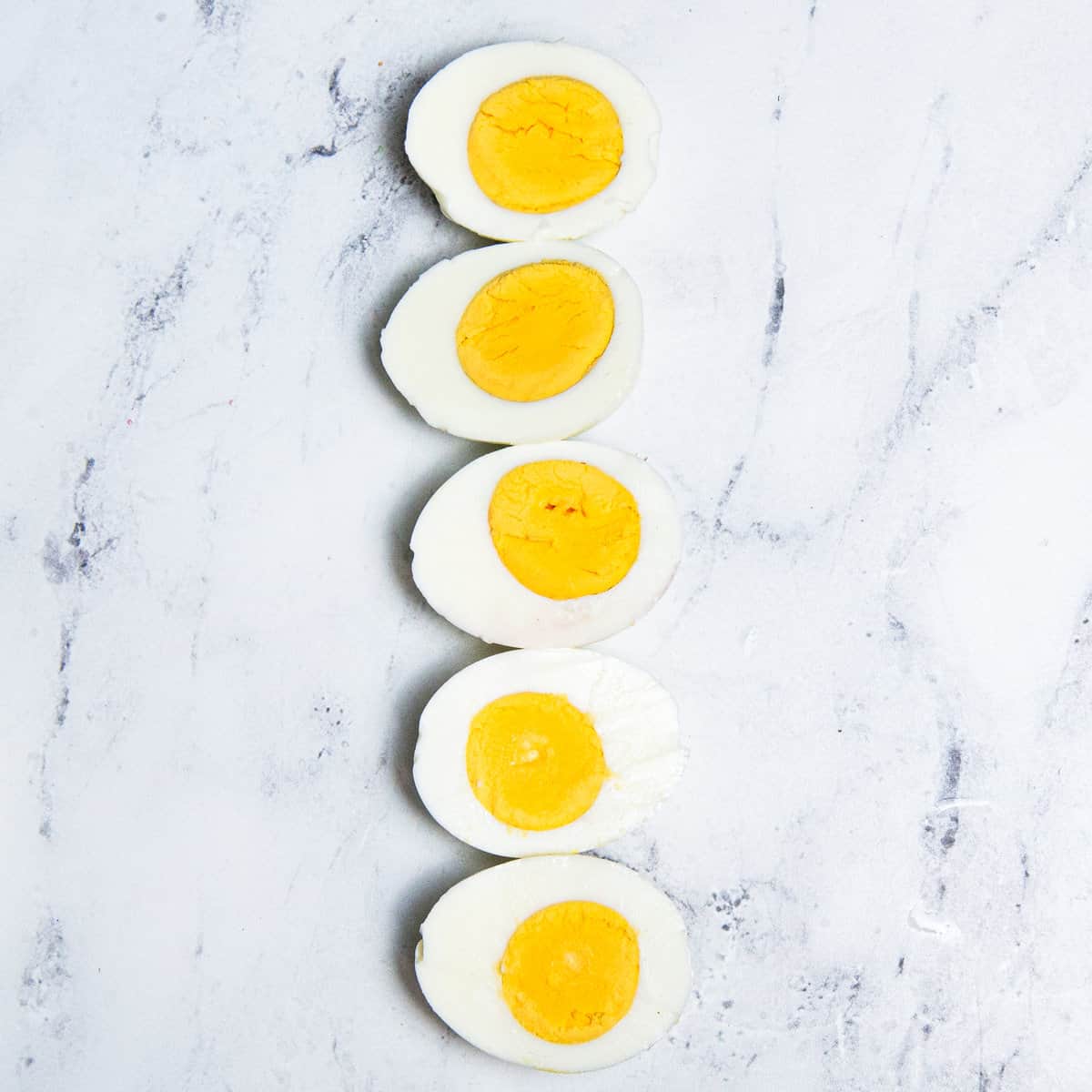
Jump to:
Boiled eggs are incredibly simple to make and they will last for up to a week when stored correctly. Hard boiled eggs have set egg whites and also set egg yolks, unlike soft boiled eggs which have a runny yolk. Although raw eggs feature in many recipes, everything from sour cream cookies to brown butter blondies, boiled eggs have always been a popular way to enjoy fresh eggs.
Not only can you make deviled eggs and egg salad using perfect hard boiled eggs, but you can also make snacks. These spiced Indian egg puffs make a wonderful appetizer. Although they're not vegan, most vegetarians consume eggs since they're a tasty and protein-rich option.
I love making deviled eggs and often prepare a dozen or so if we have people coming over. I also love to experiment with the filling, adding everything from bacon to shrimp or even fresh herbs. The last time I made them, I included salmon in the yolk mixture and included a little shrimp for garnish.
What are Hard Boiled Eggs?
Hard boiled eggs are cooked in hot water for about 12 minutes, or until the yolks are set. Chicken eggs are by far the most common option, but you can also hard boil quail eggs, duck eggs, and more. The cooking time depends on the size of the egg, so obviously, an ostrich egg is going to take a lot longer to hard boil than a little quail egg.
I used to simmer the eggs for 12 minutes, but now I cover the eggs with water, bring it to a boil, turn off the heat, cover the pan, and let them sit in the hot water. The result of this cooking process is exactly the same.
Hard boiled eggs are a great source of protein, along with choline which aids cellular maintenance and growth. They contain Vitamins A and D, as well as iron and calcium.
Hard boiled eggs do contain saturated fats which means they can raise LDL cholesterol levels (known as the "bad" cholesterol) but if you stick to healthy cooking methods, such as hard boiling instead of frying, you can keep most of their benefits without raising your cholesterol levels.
There is evidence that humans consumed eggs way back in the Neolithic age, thousands of years ago. Chickens were first domesticated around 6000 BC in China. So it's fair to say that eggs are one of the oldest foods.
Tips for Buying Hard Boiled Eggs
You have 2 choices here. You can either buy eggs and then hard boil them or buy prepared hard boiled eggs. If you're catering for a party, you might want to get prepared hard boiled eggs or even prepared deviled eggs. If you're buying raw eggs, check they are all intact and check the best-by date.
If you're buying precooked, shelled eggs, they will be ready to eat straight from the package and save time boiling and shelling your own. Some people like to choose a brand that doesn't contain sodium benzoate (E211).
This substance is used as a food preservative because it helps prevent mold, yeast, and bacteria. Although approved by the American egg board and having an FDA GRAS (generally regarded as safe) status, if you prefer to avoid such additives, choose a brand that doesn't use them, such as Eggland. The eggs should be OK for 2 weeks after the best-by date or within 30 days if there is a sell-by date instead.
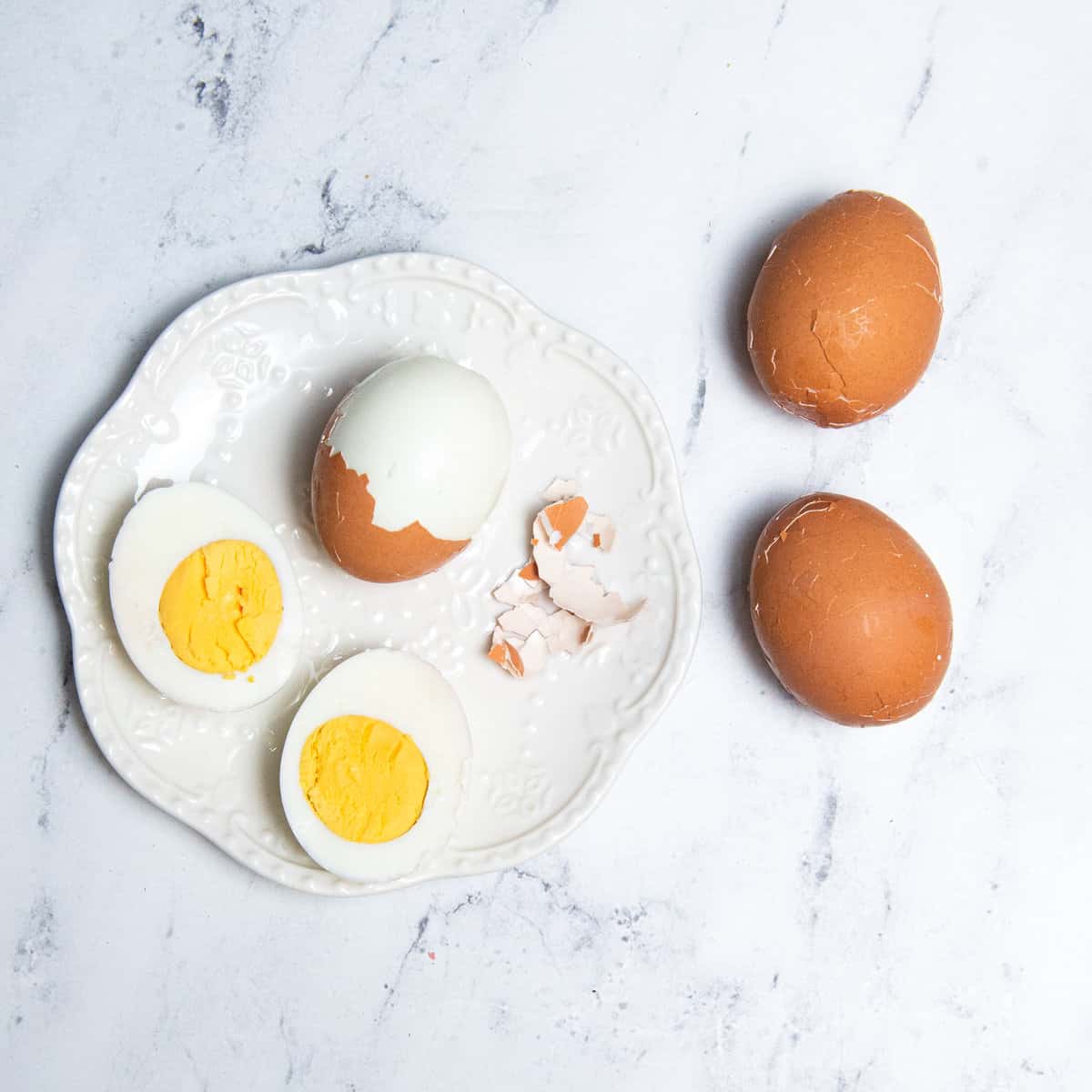
How to Store Hard Boiled Eggs
Hard boiled eggs can be stored until you want to make deviled eggs, egg salad, or an egg sandwich. This is the very best way to store hard boiled eggs:
- Don't peel them until you're ready to use them, because the shells act as a protective layer to keep them fresh for longer.
- If you have bought shelled, cooked eggs, keep them in an airtight container or the packaging they came in as long as you can seal the package tightly. I like to put the shelled eggs on top of a damp paper towel and cover them with another, to help extend their shelf life.
- Eggs boiled in their shells can be kept in an egg carton or some other type of container.
- Keep them in the refrigerator.
- Leftover deviled eggs or similar should be covered with plastic wrap, refrigerated, and eaten within 2 days unless they've been sitting at room temperature for more than a couple of hours, in which case throw them out.
If you follow the above guidelines, you can expect the best results and your hard boiled eggs will stay fresh for up to a week. Sometimes I use a sharpie to write the date on the shell so I know exactly how long they've been in the refrigerator. You can also write on the bag if you are keeping them in one.
Freeze the yolks if you want, but the egg whites don't freeze well and get tough when thawed, so don't freeze whole eggs. If you do want to freeze cooked yolks, put them in freezer bags or a sealed container and use them within 2 months.
How to Tell When Hard Boiled Eggs are Spoiled
It's good to know how to identify rotten eggs, especially if you are using older eggs. If your hard boiled eggs have been sitting at room temperature for more than a couple of hours, throw them out, even if they don't have any foul odor.
If they have been refrigerated, there are a few things to check before assuming they're safe to eat. The first thing to check for is an unpleasant odor, which is hydrogen sulfide. A bad egg has a rotten smell and once you've smelled that you won't forget it! If there is no smell or just a fresh egg smell, check the egg is not slimy or chalky anywhere.
If the egg looks and smells fine, it is probably safe to eat. Bear in mind rotten eggs can make you sick so, if you're in any doubt at all, I recommend you throw them out. Also, there is no approved storage method apart from refrigeration, so ensure they are kept in the fridge.
Common Questions
This happens when sulfur in the egg yolk has a chemical reaction with hydrogen in the egg white and is often caused by boiling the eggs for longer than necessary. Cooking water with a high iron content can also cause a green ring (or sometimes a gray ring). These eggs might not be the prettiest but they are perfectly harmless.
You don't have to, but if you put your hard-cooked eggs in an ice bath (a bowl of cold water with ice cubes), this stops the cooking process and makes sure the eggs don't cook further. Once they're cool, you can remove the eggs with a slotted spoon and remove the egg shells when ready to eat.
A small egg might be hard boiled after 10 or 11 minutes while an extra-large one might take closer to 15. If you aren't sure, give the egg an extra minute or 2 in the pan, since once they're peeled and cut, it's too late to boil them more! Make sure there's enough water to cover the eggs by an inch or so since some water will evaporate during cooking. The number of eggs in the pan doesn't affect the cooking time.
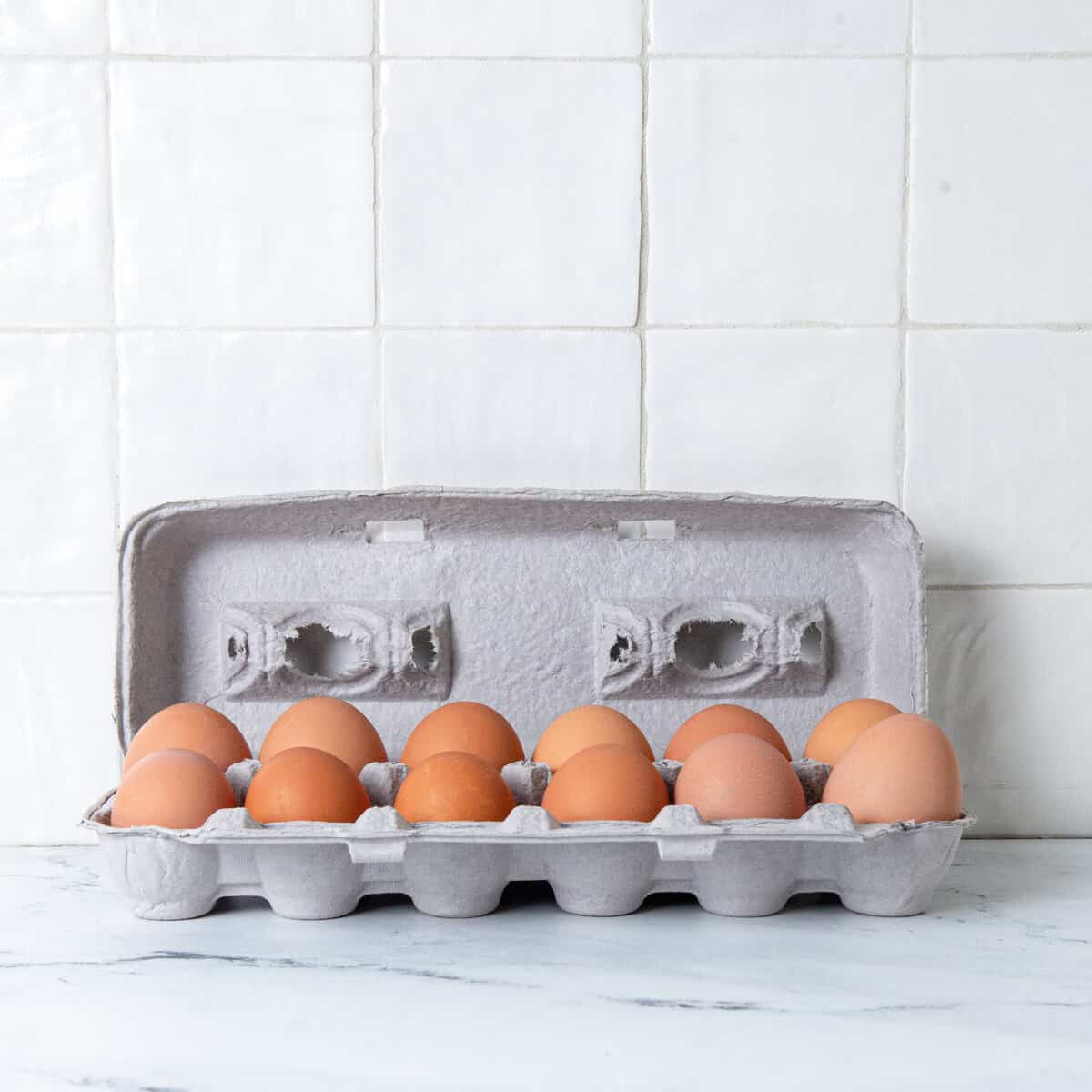
Fun Facts
- If you pickle hard boiled eggs and keep them in a sealed container, they will keep for months.
- Deviled eggs, where the yolk is mashed with mayonnaise and other ingredients and then piped back into the egg white, date back to ancient Roman times when they were served as an appetizer, along with various other boiled egg-based dishes.
- Some people add a tablespoon of vinegar to the cooking water to make the egg easier to shell, while others poke a tiny hole in the base with a pin. As a general rule, the older the eggs the easier they will be to peel.
Once you know how to boil the perfect egg, you can make delicious dishes such as deviled eggs, egg salad sandwiches, and Scotch eggs, or even use them for Easter Eggs. The above tips are based on guidelines from the U.S. Food and Drug Administration and should be helpful in determining how to store hard cooked eggs and for how long.


